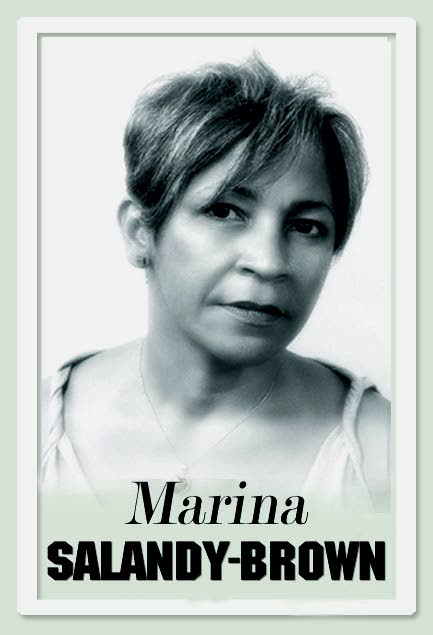Fighting the good fight

Bernardine Evaristo, who jointly won the highly coveted Booker Prize for English literature here in London a month ago, was speaking as part of a panel at a weekend-long series of events and celebrations to mark the 100th issue of the groundbreaking Wasafiri magazine.
She made the audience laugh out loud about some of the parochial attitudes that obtain in relation to ethnically diverse British writers.
Evaristo is well known as a literary activist and Wasafiri is the pioneering publication that consistently for 35 years sought to derail the “Eurocentric, classist, racist and masculinist ways of looking at the world,” as Bocas Lit Fest collaborator, publisher Jeremy Poynting. writes in the commemorative edition.
Anyone in TT who thinks that literature is not important must think again. It is a critical channel for cultural citizenship, and Evaristo has spent the better part of her working life challenging the status quo with her writing, slowly and steadily getting the great British public to see their society for what it is by writing post-colonial people into contemporary reality.
Winning a literary prize valued at well over TT$1 million reveals the power attached to her words and thoughts, and gives her a platform to continue to pronounce upon society in a way that people find acceptable because it is illuminating and offers ideas on how to proceed.
Good books contain stories that engage, excite and also disrupt our established expectations and provide new lenses to view the world. Britain’s structural denial of ex-colonial peoples in its midst is legend in the book-publishing sphere, both in employment and as purveyors of literary opportunity.
More about that later, but in her well conceived Booker-winning title Girl, Woman, Other Evaristo creates a host of mainly black women characters who defy assumptions about the lives of women of colour in Britain today. By striking the balance in her exquisite writing between bringing readers in and challenging them to think differently, she achieves the change of heart and opinion that many a politician hopes for.
Nothing happens by accident. Someone must spot the lacunae and decide they want to try to plug the gap.
Wasafiri grew out of the Association of Teaching of Caribbean, African, Asian and Associated Literatures (ATCAL) over three decades ago, when the need to bring that material into the school curriculum had become a vital issue.
Although she is now handing over the baton, Susheila Nasta led Wasafiri for the entire time. Her self-appointed task was to create space for writers from everywhere. The magazine trailblazed, with writers such as our own Earl Lovelace and almost every successful Caribbean writer appearing between its covers, often long before they got publishing deals.
Wasafiri’s combination of new writing, literary criticism and cultural and artistic analysis refused to accept the established beliefs and hierarchies of British publishing that see the United Kingdom as monochrome, and won success, but the battle continues. In 2018 only one per cent of books for children published in the UK had a black, Asian or other ethnic minority main character, which obviously feeds British children with an erroneous sense of contemporary society that carries on into adult life.
The stories we tell influence us more profoundly than we imagine. Universities UK, which represents vice chancellors, has become so concerned by the widening gap in attainment levels between ethnic minority and white British children that it has set the decolonisation of the curriculum as an urgent project.
That leads us back to publishing and who controls access to the public.
With few exceptions, the rarefied gentleman’s world of UK book publishing was closed to outsiders, mainly because it was not a profession. Only those with private means could dabble. Narrow editorial criteria prevailed as a result. Publishing is now corporate business and the world has changed but the attitudes groomed by those early publishers endure, although not without suffering the continued onslaught of literary and social activists firing from the margins.
CLR James inaugurated the International Bookfair of Radical Black and Third World Books in the 1982, a collaboration between fellow Trinidadian John La Rose’s New Beacon Books, Race Today – the political magazine run by Darcus Howe, Farrukh Dhondy and Linton Kwesi Johnson – and Bogle L’Ouverture, founded by Guyanese publishers Jessica and Eric Huntley. Understanding the power of cultural engagement, those activists believed that writers from the colonies and their children had the wherewithal to “write back.” Before them, Margaret Busby (who has Trinidadian roots) had co-founded the unique Allison and Busby, publishing a slew of talented unknown writers. Others too carried the baton and still do.
VS Naipaul won the Booker Prize in 1971, and was the first Trinidadian to do so. Marlon James, in 2015, was the first Jamaican. A host of awards going to Caribbean writers in recent years are helping establish a new literary generation.
In 2020 more new work will appear and compete on the international stage as we continue the journey from marginalisation to centre stage.


Comments
"Fighting the good fight"